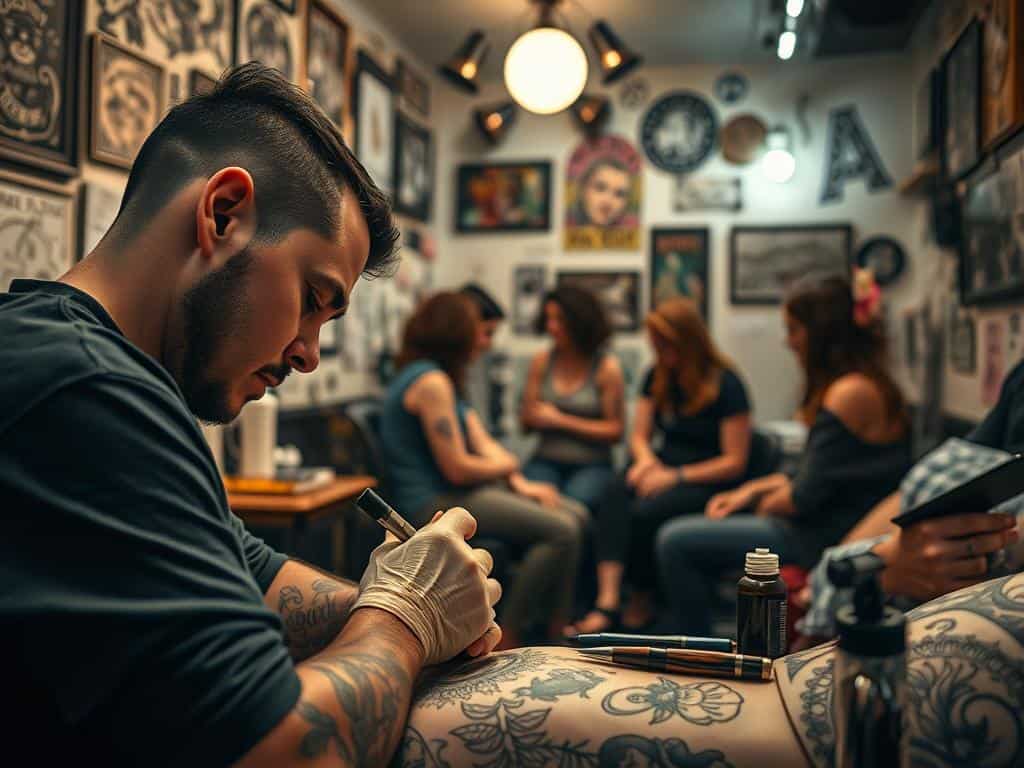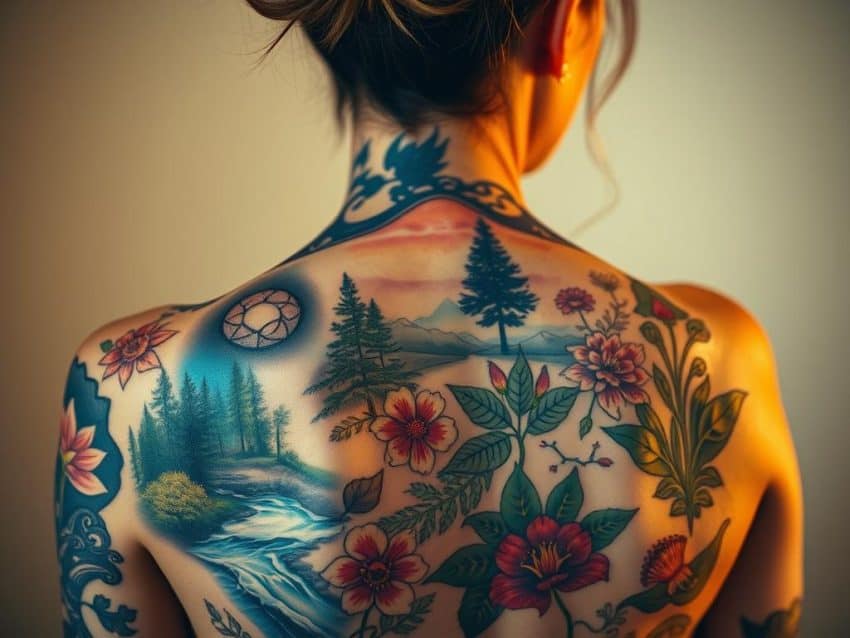Thinking back to my first tattoo, I remember the rush of emotions. It was a mix of nervousness, excitement, and freedom. Tattoos have grown beyond just looks; they stand for strength, self-expression, and healing.
Many see tattoos as a deep connection to who they are and what they’ve been through. The tattoo world is growing, with about 20% of adults in the UK getting inked. This shift shows how tattoos can change our lives, improving our mental and emotional health.
Key Takeaways
- Tattoos can significantly enhance mental health by promoting self-expression and reducing anxieties.
- Historical evidence shows that body art has existed for thousands of years across various cultures.
- Studies indicate that individuals who get tattoos experience immediate decreases in bodily dissatisfaction.
- Memorial tattoos allow individuals to maintain a bond with loved ones who have passed away.
- Multiple tattoos may stimulate the immune system and reduce stress, benefiting overall physical health.
- The rising acceptance of tattoos mirrors changing attitudes about body art in contemporary society.
- Tattooing can even enhance vaccine efficacy, illustrating its health benefits.
The Transformative Power of Tattoos on Mental Health
Tattoos are more than just body art; they are a way to express our deepest feelings. They tell our stories when words can’t. Tattoos give us a sense of control over our bodies and lives.
Self-Expression through Body Art
About 30% of Americans have at least one tattoo. This shows a growing trend of personal expression. Tattoos can boost self-esteem by 25% compared to those without.
Getting a tattoo can be therapeutic, reducing stress and anxiety by 15%. It helps us connect with our true selves, giving us a sense of control.
Symbolism and Healing
Tattoos carry deep meanings that can bring emotional relief. Symbols like the semicolon and phoenix represent overcoming challenges. Hashtags like #MentalHealthAwareness help reduce stigma through visible support.
Many see tattoos as healing rituals, reminding them of their strength. A remarkable 60% of tattooed people see their tattoos as a symbol of resilience.
The tattoo community fosters connections, reducing feelings of loneliness. About 50% of tattooed individuals find social connections through shared experiences. Tattoos turn pain into purpose, serving as daily reminders of our strength.
They encourage open conversations about mental health. For me, tattoos have marked my journey and become a part of my healing.
Tattoos and Wellness: Exploring the Connection
Tattoos are more than just body art. They are a way to express oneself creatively and help with wellness. Art therapy is recognized for its role in emotional healing. Getting a tattoo often means sharing personal stories, which can help in healing.
Art Therapy and Creative Expression
Tattoos are a deep form of creative expression. Research shows they can lower stress and anxiety, acting like meditation. This mirrors the calm found in art therapy.
While getting a tattoo, people reflect on their lives and feelings. Psychotherapist Kat Vollono says this mirrors the purpose of therapy, including the use of psychedelics.
Community and Connection
The tattoo community is full of life, promoting social connection. Sharing tattoo stories helps fight loneliness and isolation. With more people getting tattoos, body art is becoming a way to connect and share experiences.
Stories about tattoos can make people feel part of a community. This can boost mental health and well-being.

Conclusion
Tattoos do more than just look good. They connect deeply with our mental health and personal growth. By turning our skin into a canvas, tattoos let us share our life stories. This way, we can show who we are through art.
More people are getting tattoos, which changes how society sees them. Tattoos help us feel more in control and accepted. They also bring us closer to others, creating a sense of community.
Tattoos help us deal with tough emotions like grief and anxiety. They let us express our experiences in a unique way. This shows how tattoos are more than just art; they’re a key part of our mental health journey.
